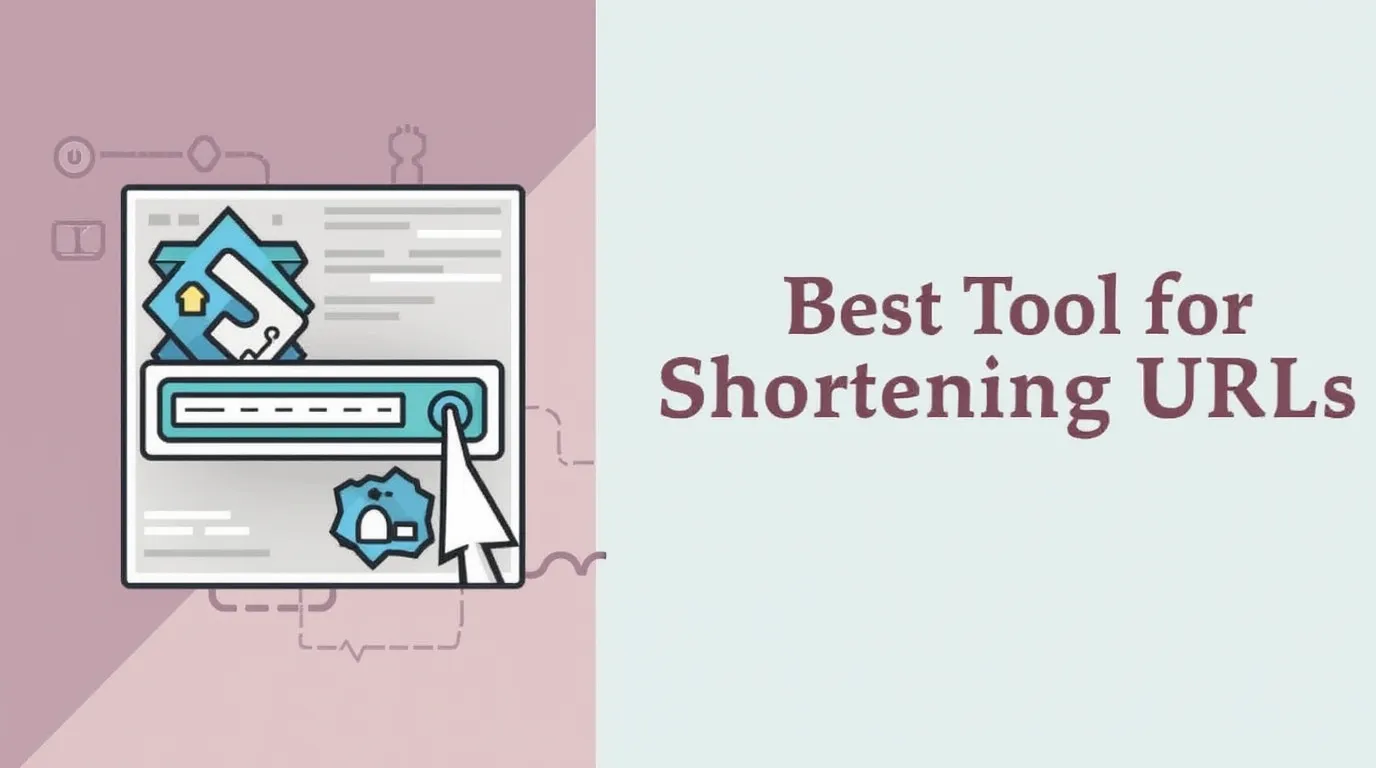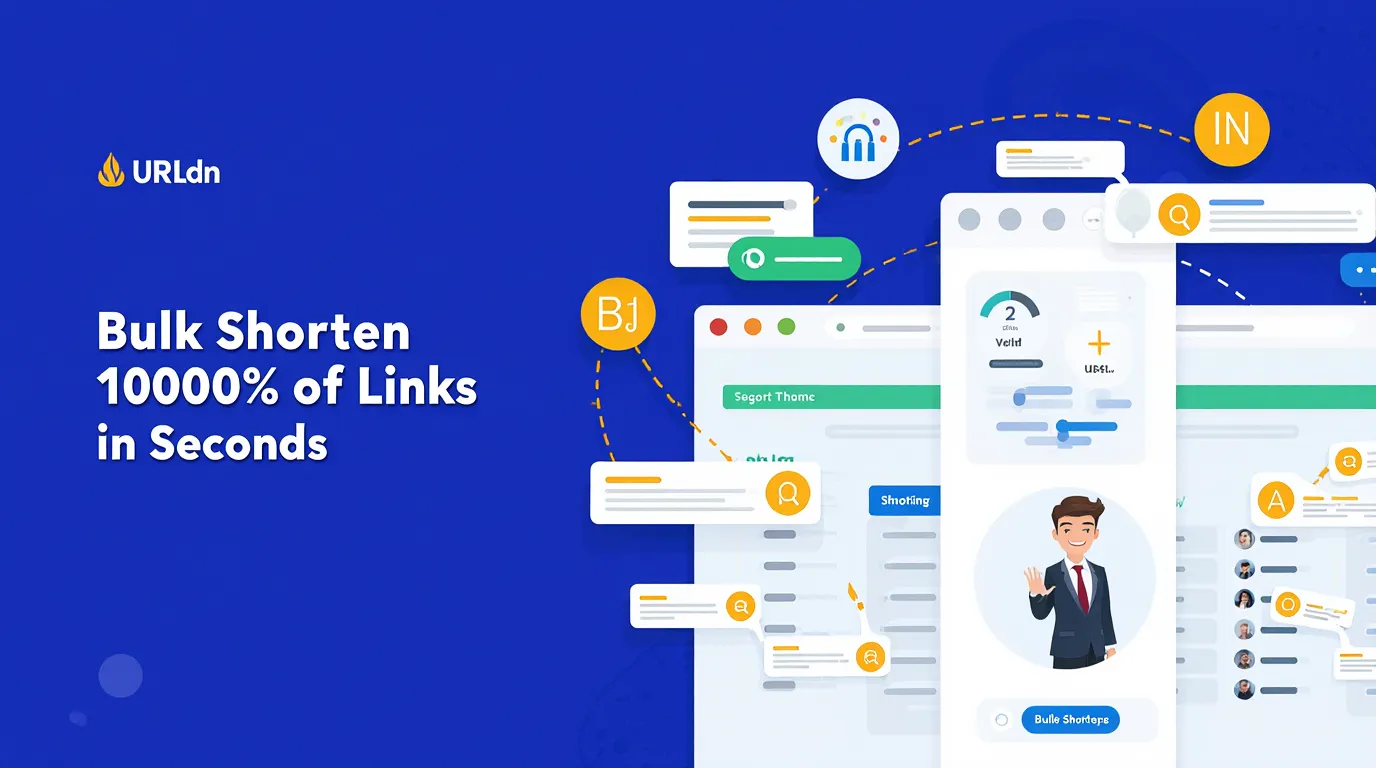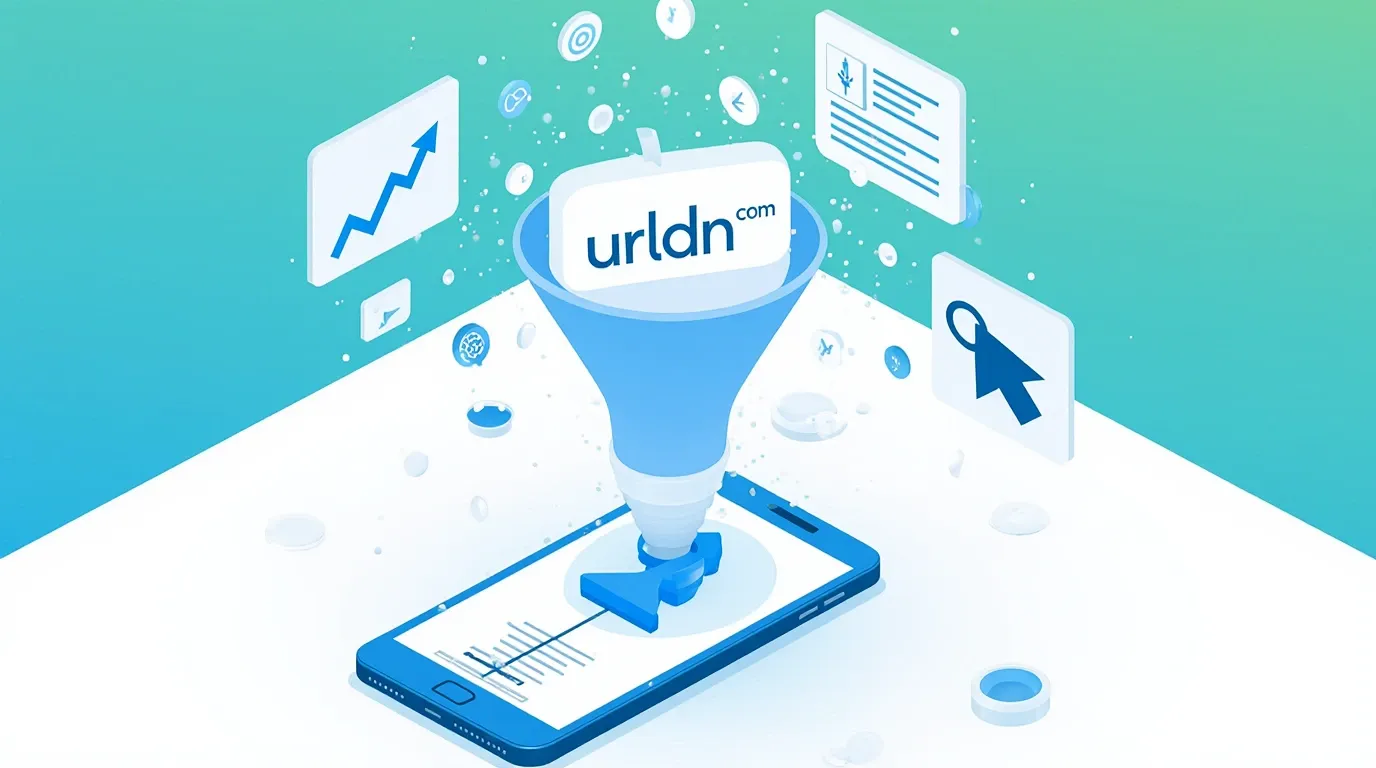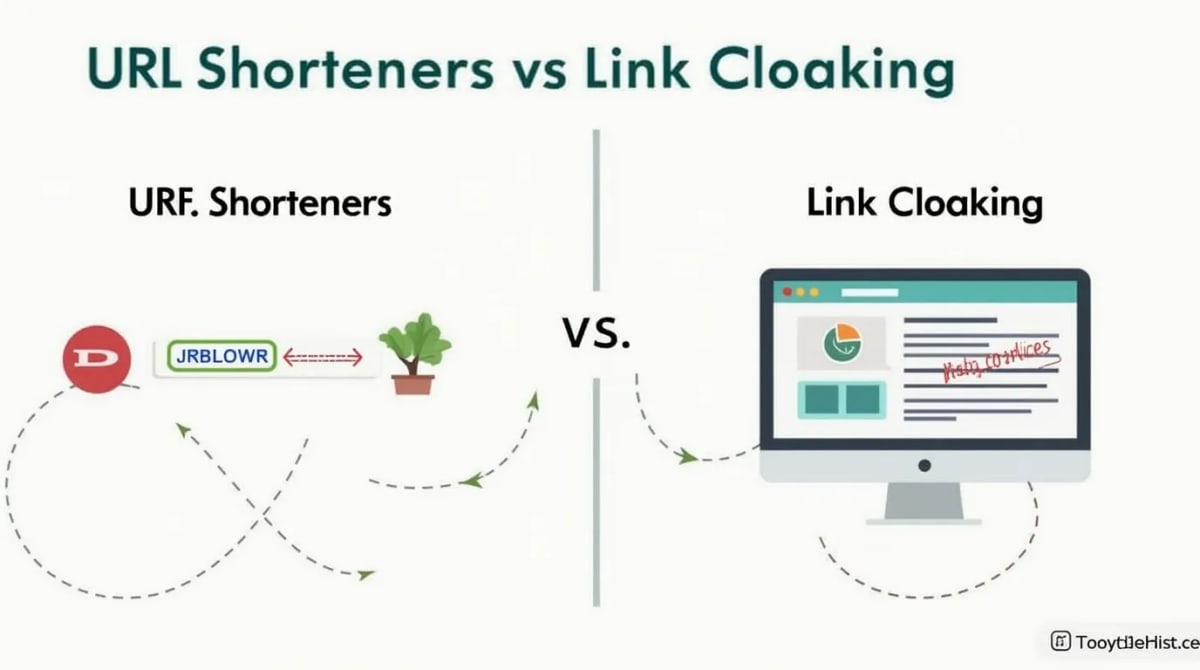
The Best URL Shorteners in 2025: Top Services Compared
Last updated on: July 1, 2025
Long, messy URLs are a modern-day nuisance. Whether you’re sharing a link on social media, embedding it in an email, or using it in a presentation, tracking parameters and convoluted strings can make your links look unprofessional and unwieldy. The problem became even more pronounced after Google shut down its beloved URL Shortener in 2019, leaving users scrambling for alternatives.
But here’s the good news: the world of URL shorteners has evolved, and there are now dozens of tools to help you streamline your links. As someone who’s spent years reviewing tech and web apps, I’ve tested over 45 URL shorteners this year alone to bring you the best options available. Whether you’re a marketer, blogger, or casual user, the ideal URL shortener depends on your specific needs. Let’s break it all down.
What Does a URL Shortener Do? (And How Has It Evolved?)
At its core, a URL shortener does exactly what its name suggests: it takes a long, complicated URL and turns it into
a shorter, more manageable link. For example, a link like
https://www.example.com/blog/post-title?utm_source=newsletter&utm_medium...etc
can be transformed into something as simple as urld.com/spring-sale.
But URL shorteners have come a long way since their inception. Today, they’re not just about shortening links—they’re powerful tools for tracking, customization, and even device-specific redirection. Want to know how many people clicked your link? Curious about where those clicks came from? Need to send mobile users to one page and desktop users to another? Modern URL shorteners can do all that and more.
How We Evaluated the Best URL Shorteners
With so many options available, it’s important to know what makes a URL shortener stand out. Here are the key features we considered when evaluating the tools on this list:
- Analytics and Click Tracking: The ability to monitor link performance, including click counts, geographic data, and device types.
- Customization of URLs: Options to create branded or custom short links (e.g.,
urldn.com/sale). - Standalone App: A user-friendly interface that’s easy to set up and use without additional tools.
- Value for Price: The balance between features and cost, especially for paid plans.
We also paid close attention to the user interface and extra features like bulk shortening, link management, and integration with other platforms.
The Best URL Shorteners in 2025
After rigorous testing, we’ve narrowed down the list to seven standout URL shorteners. Each has its own strengths, so you can choose the one that best fits your needs.
1.URLDn
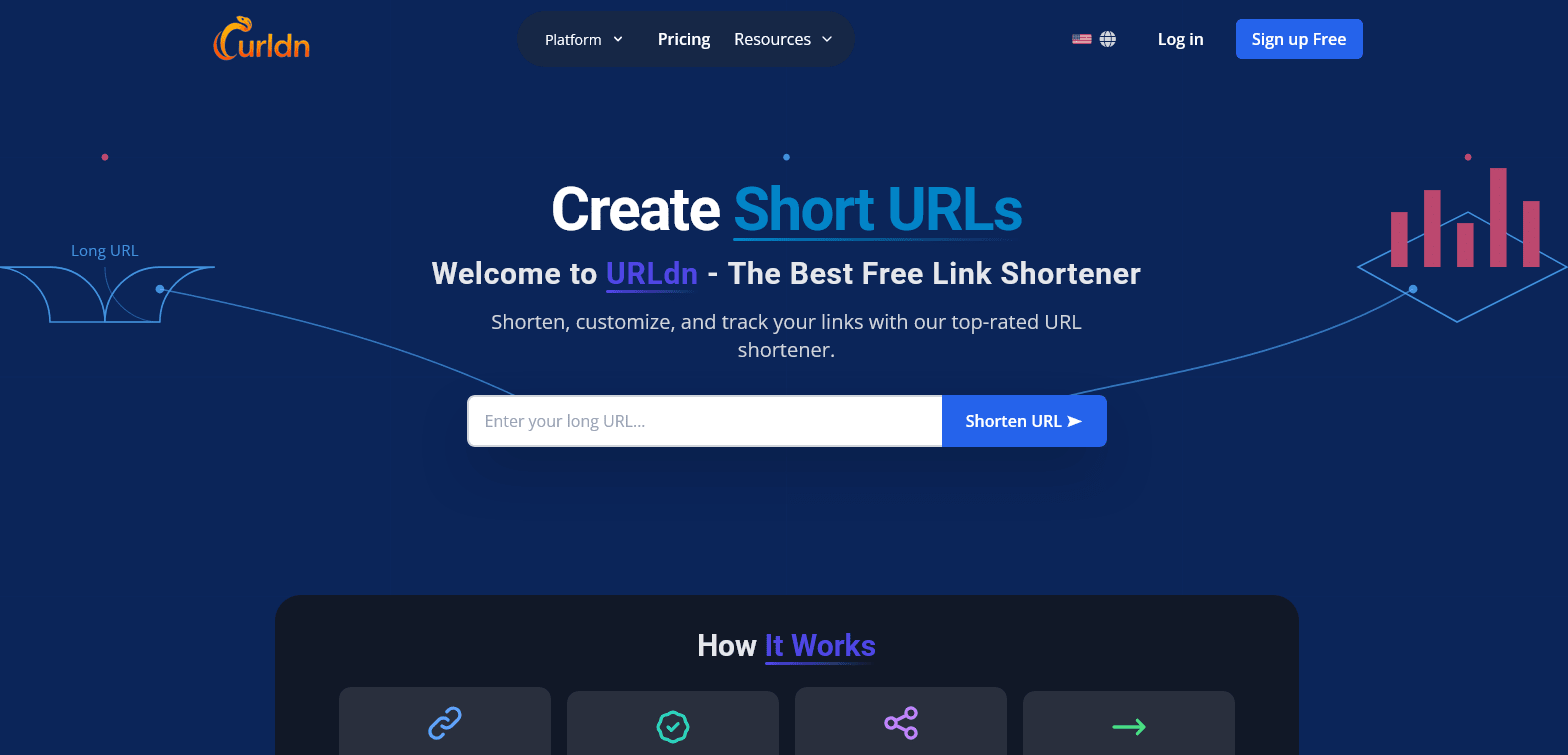
Pros:
- Completely free with all features included
- Custom domains and branded links
- Advanced Analytics
- Mobile-friendly design
- Simple and intuitive interface
- Unlimited URL shortening
Cons:
- Limited support for enterprise needs
Description: URLdn is a versatile URL shortener perfect for individuals and businesses of all sizes. Get started completely free with reliable link shortening, branding options, and essential analytics to track your clicks and engagement. For advanced users, unlock powerful premium analytics—including detailed real-time reports, enhanced geolocation insights, and bot filtering—with our affordable paid plans.
Pricing: Unlock advanced analytics and additional customization options with flexible pricing tailored to your needs.
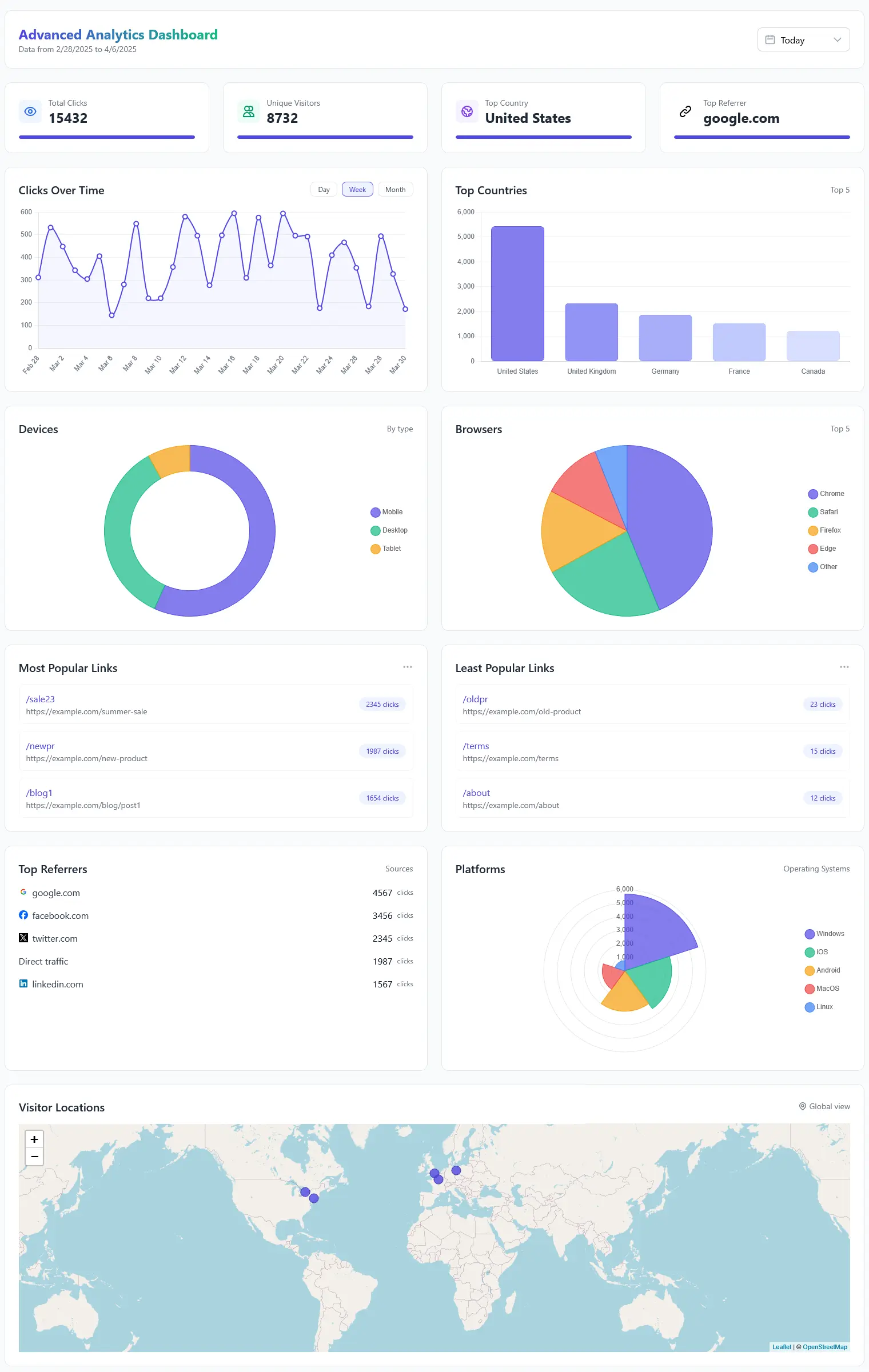
2. Bitly
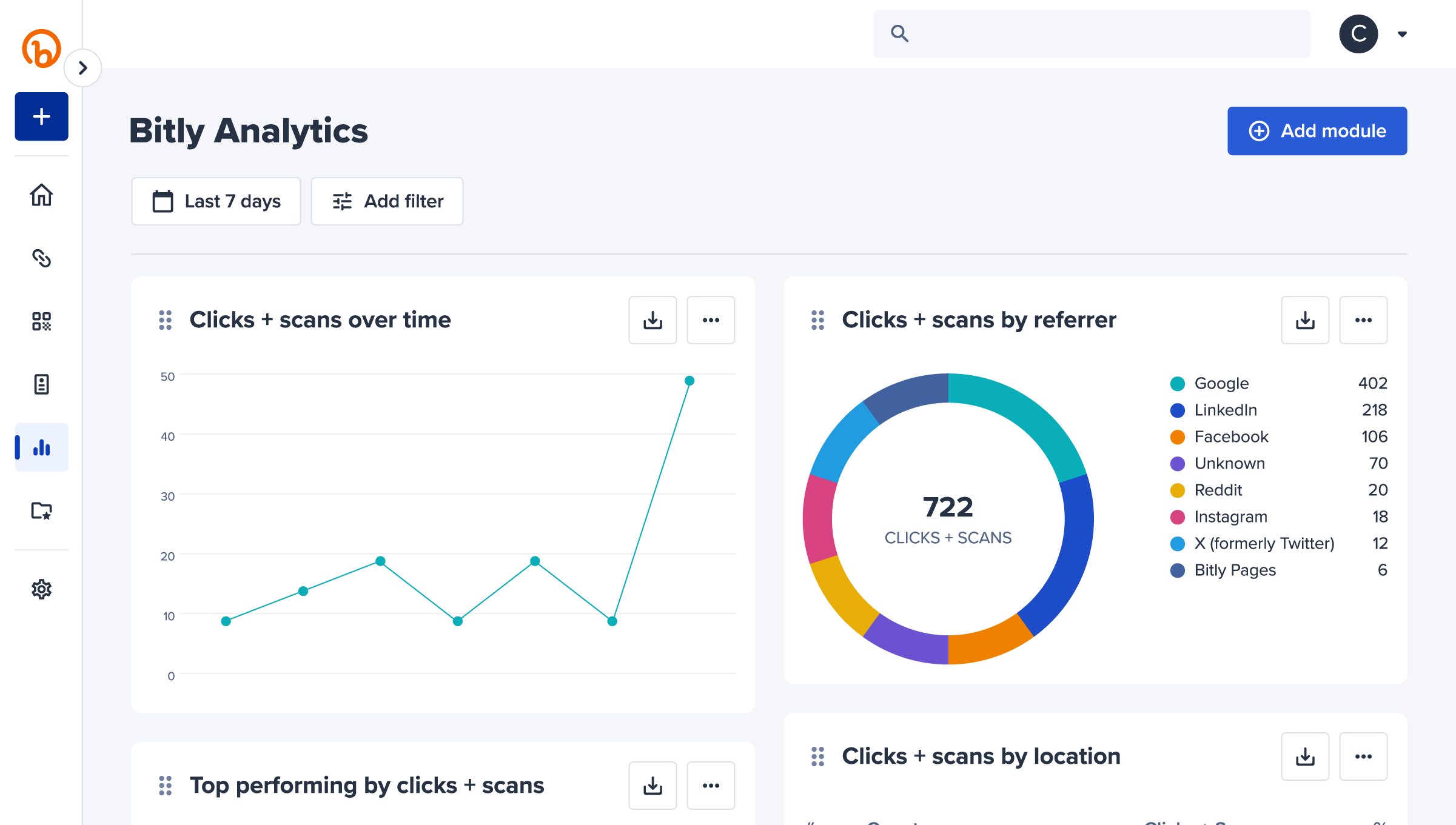
Pros:
- Robust analytics and click tracking
- Custom branded domains
- Integrates with popular tools like Zapier and Hootsuite
Cons:
- Free plan is limited
- Pricing can be steep for small businesses
Description: Bitly is the gold standard of URL shorteners, offering a comprehensive suite of features for both casual users and enterprises. Its analytics dashboard is second to none, providing detailed insights into link performance.
Pricing: Free plan available; paid plans start at $29/month.
3. TinyURL
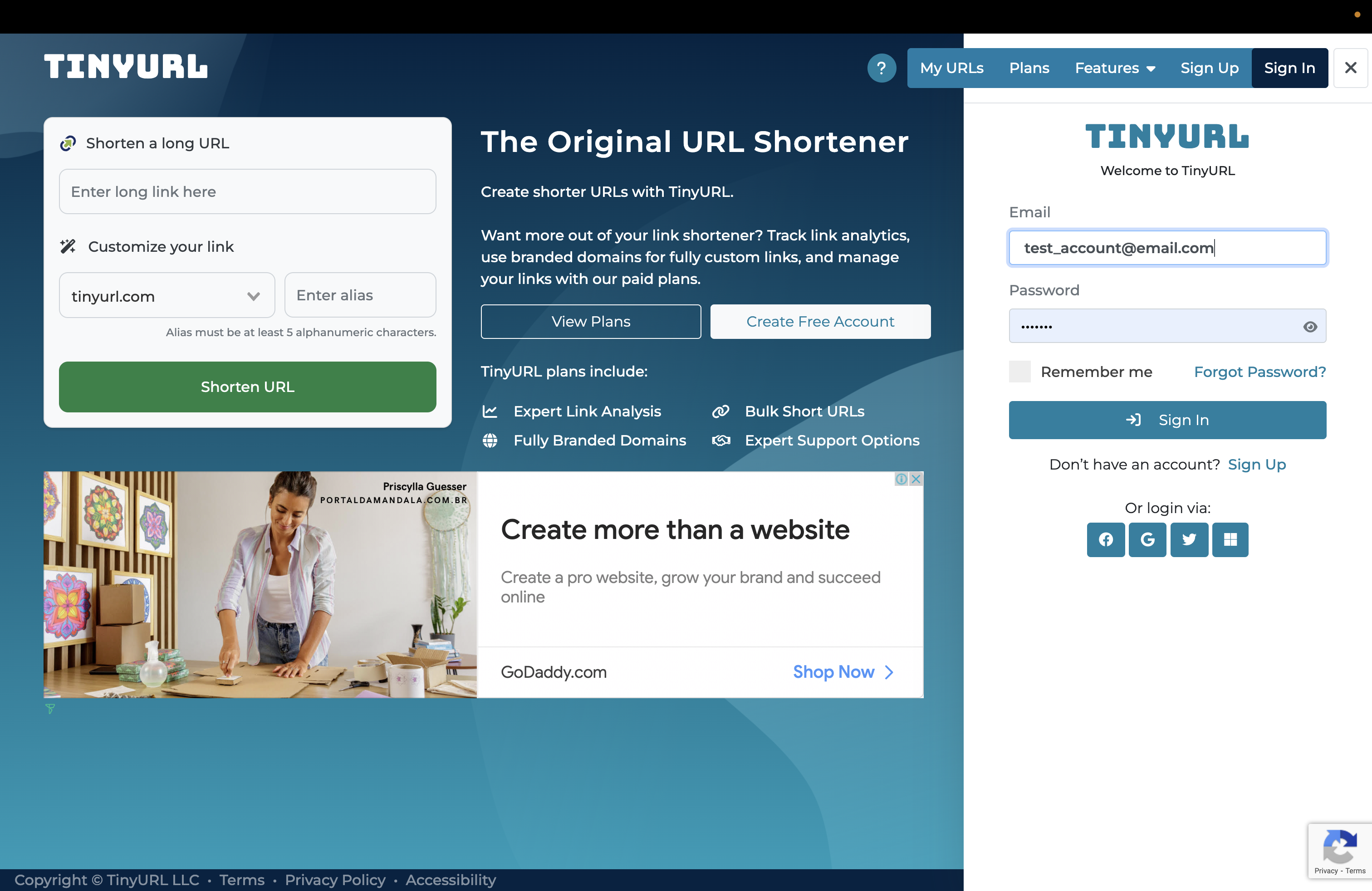
Pros:
- Simple and easy to use
- No account required for basic shortening
- Completely free
Cons:
- Limited customization and analytics
- No branded URLs
Description: TinyURL is perfect for those who need a quick, no-frills solution. While it lacks advanced features, its simplicity makes it a favorite for casual users.
Pricing: Free.
4. Rebrandly

Pros:
- Excellent for branded short links
- Advanced link management features
- Integrates with Google Analytics
Cons:
- Free plan is restrictive
- Steeper learning curve
Description: Rebrandly is a top choice for businesses looking to create branded short URLs. Its link management dashboard is intuitive and packed with features.
Pricing: Free plan available; paid plans start at $29/month.
5. Short.io
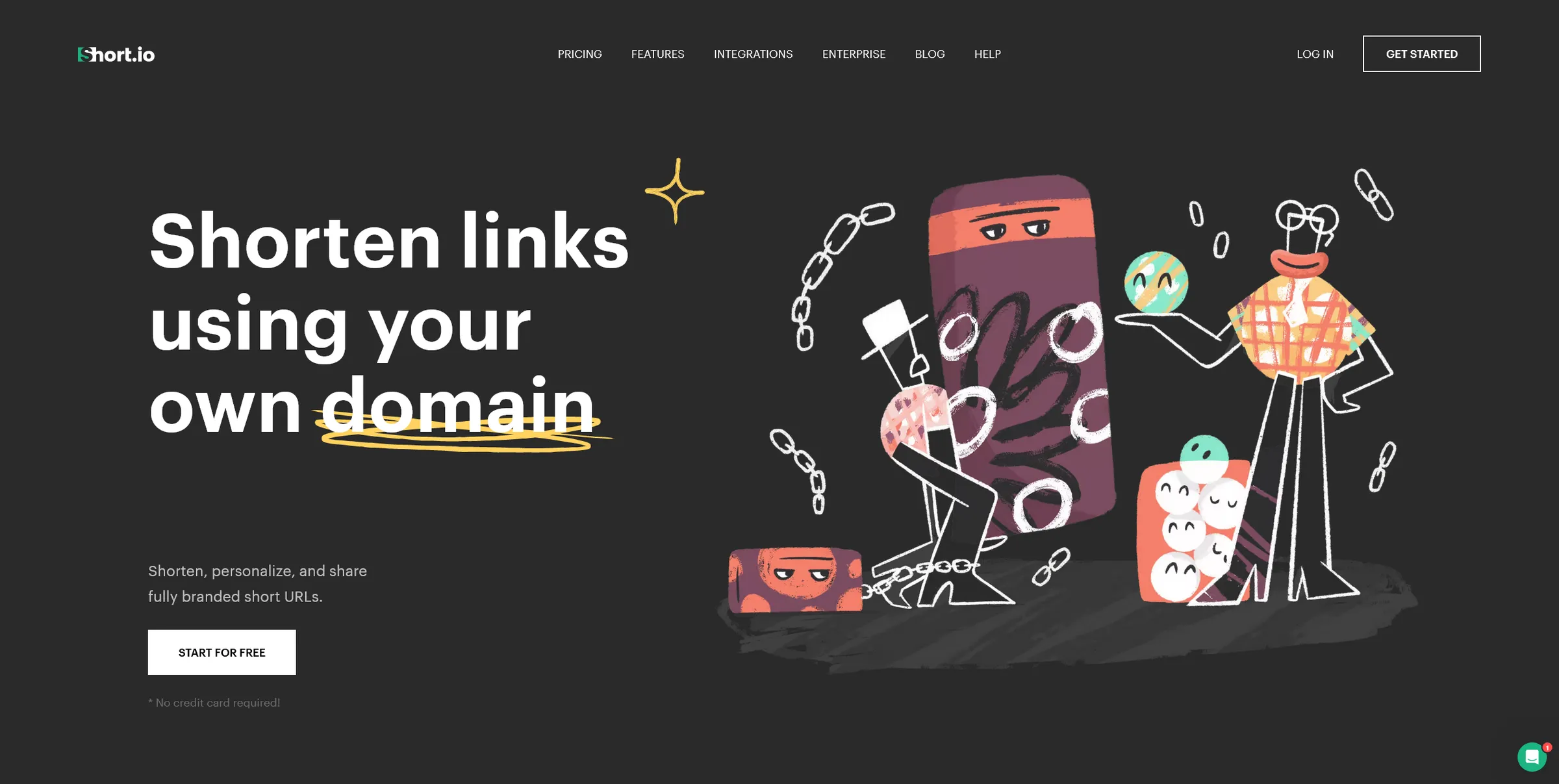
Pros:
- Custom domains and branded links
- Detailed analytics
- Affordable pricing
Cons:
- Limited integrations
- Free plan has restrictions
Description: Short.io strikes a great balance between affordability and functionality, making it ideal for small businesses and marketers.
Pricing: Free plan available; paid plans start at $19/month.
6. BL.INK
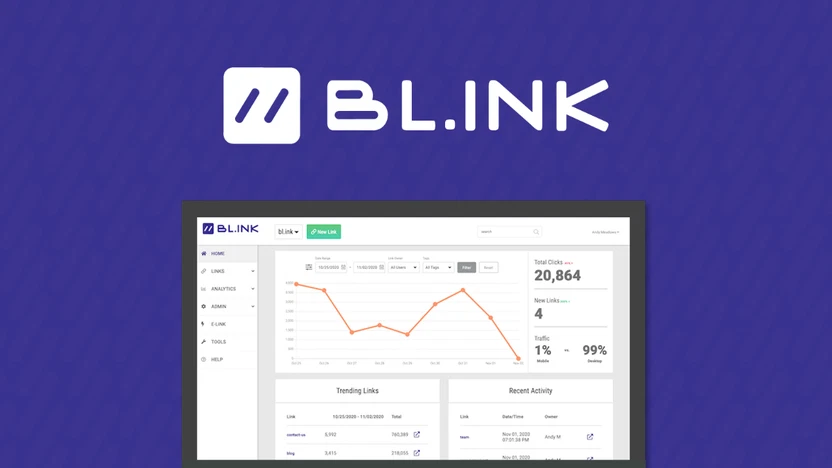
Pros:
- Powerful analytics and reporting
- Custom domains and branded links
- Easy-to-use interface
Cons:
- Expensive for small teams
- Limited free plan
Description: BL.INK is a premium option for businesses that need advanced tracking and reporting capabilities.
Pricing: Free plan available; paid plans start at $25/month.
Comparison Table
| Shortener | Best For | Free Plan | Starting Price |
|---|---|---|---|
| Bitly | All-around use | Yes | $29/month |
| URLdn | Individuals, freelancers | Yes | 100% free for all users |
| TinyURL | Casual users | Yes | Free |
| Rebrandly | Branded links | Yes | $29/month |
| Short.io | Small businesses | Yes | $19/month |
| BL.INK | Advanced analytics | Yes | $25/month |
Are Free URL Shorteners Still Worth It?
Free URL shorteners have seen a decline in quality over the years, largely due to spam abuse and the shift from social media use to marketing. Most free plans now come with limitations, such as fewer features or mandatory branding. However, if you’re looking for a free option, TinyURL and Short.io are still solid choices.
Conclusion
All the URL shorteners we tested can do the job of shortening links, but the best one for you depends on your specific needs. If you’re after simplicity, TinyURL is hard to beat. For advanced analytics and customization, Bitly and Rebrandly are top contenders. And if you’re on a budget, Short.io offers excellent value.
My personal favorites? urldn for quick, no-fuss shortening and TinyURL for its open-source flexibility. Try a few options and see which one fits seamlessly into your workflow.



